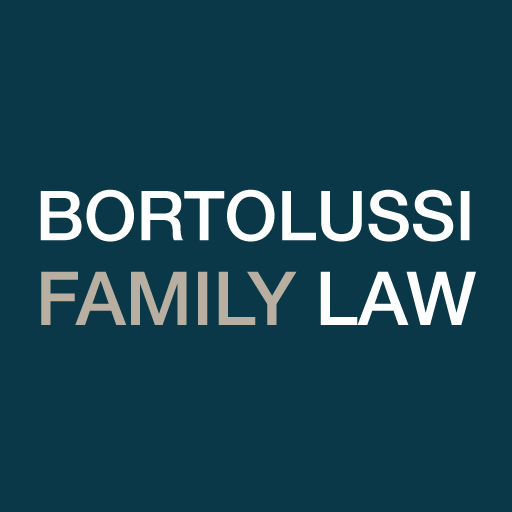Are There Exceptions to Confidentiality in Family Mediation?

There are a number of benefits to resolving family law disputes through alternative dispute resolution methods such as mediation, arbitration, or collaborative family law. One of those key benefits is confidentiality. Unlike litigation before a court, private dispute resolution methods are not open to the public, and the details and outcomes are kept confidential between the parties involved. Given the intimate and personal nature of many family disputes, this can be a deciding factor for many families when considering how best to resolve any outstanding issues they may have after a separation or divorce.
The confidentiality of mediation proceedings and the resulting settlement agreements attract “settlement privilege”. As explained by the Supreme Court of Canada in Association de médiation familiale du Québec v. Bouvier, settlement privilege is “a rule of evidence that protects the confidentiality of communications and information exchanged for the purpose of settling a dispute”. The concept was developed as a means of promoting free and open discussion between parties and encouraging settlements in all types of disputes. Settlement privilege applies automatically to any communications leading up to and including the parties reaching an agreement on some or all of the matters in dispute.
Exception to Settlement Privilege in Commercial Mediation
There are some narrow exceptions to settlement privilege that may be applied in a court case, if necessary. In a 2014 decision called Union Carbide Canada Inc. v. Bombardier Inc., the Supreme Court established that an exception to settlement privilege could be justified to prove the existence and terms of a settlement stemming from a commercial mediation. However, it was unclear whether this exception would apply in the context of family mediation.
Recently, Canada’s highest court ruled that one such exception can be applied to family law mediation in order to prove the existence of an agreement.
Does Exception to Settlement Privilege Apply to Family Mediation?
In Association de médiation familiale du Québec v. Bouvier, the question before the Court was whether a summary of mediated agreements, as well as communications between the parties leading up to and following the agreements, were protected by mediation confidentiality (settlement privilege). The parties, IB and MB, had been spouses for more than three years and shared two children together. When they ended their relationship, they entered into mediation to come to an agreement on the following issues:
- Parenting time and decision-making ability with respect to their children;
- Child support;
- Each party’s rights with respect to their shared home; and
- Compensation to IB for the impact of her childcare responsibilities on her career.
At the end of the mediation process, the mediator summarized the various agreements the parties had reached in a document titled Summary of Mediated Agreements.
After the mediation concluded, IB filed an application in court seeking additional financial compensation. MB objected, saying that the parties had already agreed to compensation terms, as set out in the Summary. IB took the position that it was not a binding agreement and, furthermore, that the Summary should not be admitted into evidence as it was protected under the confidentiality of the mediation process.
Trial Court Rules Exception to Settlement Privilege Applies to Family Mediation
At the trial level, the court allowed the Summary to be admitted into evidence, stating that the exception set out in Union Carbide for commercial mediation also applied to family mediation. Based on the Summary as well as post-mediation conduct of the parties, the trial court determined that there was a binding contract between the parties with respect to IB’s compensation.
Court of Appeal Split on Application of Exception to Settlement Privilege in Family Mediation
The Court of Appeal dismissed IB’s appeal, although the court was split on whether the exception to settlement privilege established in Union Carbide should apply in the context of family mediation.
IB did not appeal the Court of Appeal decision, but the Association de médiation familiale du Québec sought and received approval to be substituted as the appellant to bring the matter before the Supreme Court of Canada.
Supreme Court of Canada Confirms Exception to Settlement Privilege Applies to Family Mediations
The Supreme Court of Canada examined the public policy reasoning behind settlement privilege, which is to encourage free and honest communication with the goal of reaching an agreement. Once the parties have reached an agreement, it may become necessary to prove the existence of the agreement in further disputes.
The Court noted that once an agreement has already been reached, there is no longer a public policy reason to prohibit the admission of the agreement as evidence. In fact, the ability to prove the existence of an agreement can help strengthen the general goal of encouraging settlements.
While IB and MB had not signed the Summary to form a contract, the existence of the Summary, as well as each party’s post-mediation communications and conduct, indicated that they had reached an “agreement of wills” on the terms set out in the Summary.
What Does the Ruling Mean for Family Mediation in Canada Going Forward?
Although the decision stems from a case out of Québec, its implications may be felt across Canada. The Supreme Court examined the mediation contract the parties had entered into at the start of their mediation and found that while the standard confidentiality clauses were there, neither party specifically looked to displace settlement privilege or the exceptions to it. This suggests that parties to a family mediation may be able to contract out of the exceptions to settlement privilege.
Contact Bortolussi Family Law in Vaughan for Reliable Advice & Representation in Family Mediation
At Bortolussi Family Law, our divorce lawyers have extensive experience in representing clients in family mediation. Additionally, our founder, Lorraine A. Bortolussi, is an accredited Family Mediator through the Ontario Association for Family Mediation (OAFM).
We represent clients by diligently advocating for their rights while maintaining a healthy and productive dynamic with their former spouse or partner whenever possible. To discuss your family law matter, please reach out online or by phone at 416-987-3300.





